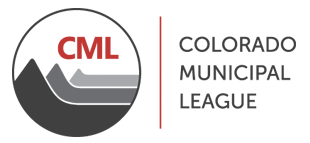Liaising with DOR on local taxation
In This Section
CML Newsletter
Sept. 2, 2025
By Rachel Bender, CML senior associate counsel
While local taxation is a well-established matter of local concern, there are many ways in which municipalities liaise with the Colorado Department of Revenue (DOR) when it comes to local taxation. Some of that coordination is mandated by state law, serving to benefit both local governments and the state given the ways in which they interact, while other coordination is optional, but also serves to benefit government, as well as the business community.
New sales and use tax reporting changes
In 2024, the Colorado General Assembly passed Senate Bill 24-025, which went into effect July 1, 2025, and overhauled the statutes addressing DOR’s collection of local sales tax for certain local governments. The act was intended to place all relevant statutory provisions in one place, increase uniformity, and streamline processes for DOR. While many of the changes were administrative, the act requires all local governments for which DOR collects sales tax to identify at least one liaison to coordinate with DOR (C.R.S. § 29-2-213) and it changes the timelines for all local governments, including self-collecting home rule municipalities, to report new or changed tax information to DOR (C.R.S. § 29-2-205).
Previously, all municipalities were directed to file a copy of each sales or use tax ordinance (including amendments) with DOR at least 10 days after the effective date of the ordinance. Under SB24-025, municipalities must file such documents at least 45 days before the effective date. DOR uses this information to bi-annually update the DR1002, which serves as a central repository of sales and use tax information in Colorado, as well as the Colorado Sales Tax Lookup website. These resources aid local governments looking to research other jurisdiction’s sales and use tax rates as well as businesses that are trying to identify correct tax rates.
Under SB24-025, state-collected municipalities must also provide DOR with written notice and documentation of any ordinance submitting a tax question for an upcoming election no later than 14 days after adopting the ordinance. This provides DOR with notice of potential upcoming tax changes for which they will be responsible. Tax changes for state-collected local governments must go into effect Jan. 1 or July 1, and a state-collected local government’s failure to follow either of the above notice requirements can result in a six-month or more delay in DOR implementing the change. No other penalties are prescribed for failure to follow these timelines, but adhering to these timelines is a best practice that serves to benefit local governments and businesses alike.
DOR’s election correspondence
Several months before fall and spring elections, DOR’s local government team emails all local governments regarding timelines and requirements associated with putting a tax question on the ballot. Most of those requirements stem from statutory requirements. However, there are other “requirements” that often cause confusion for local governments. Notably, DOR asks local governments to contact them and send a draft of any tax-related ordinance four months prior to the election. This is not a statutory or regulatory requirement, but a best practice for state-collected local governments. Following this step helps ensure there are no issues that would prevent DOR from collecting the new or amended tax should it pass during the election. This extra-early notice provides time for the local government and DOR to work together in the event of an issue so that implementation is smooth and successful. The only reporting requirement in DOR’s email that applies to self-collecting home rules is the notification of the adoption of a new or changed tax 45 days prior to the effective date of the ordinance; again, while there are no penalties for failure to do so, this information is used in important DOR publications.
Other tax coordination efforts
In 2024, the General Assembly also passed House Bill 24-1050, requiring local governments to report certain information about local lodging tax and sales and use tax for building or construction materials to DOR beginning in June 2025. In early August 2025, DOR put out its first publications — the DR1003 and DR1004 — compiling this information. HB24-1050 originated in the legislature’s Sales and Use Tax Simplification Task Force as a simplification effort to assist businesses in being able to go to one source for much of this information. Although reporting always imposes additional costs on municipalities, CML did not oppose this effort given the important simplification solution it provided without impinging on local authority to levy such taxes.
Given the importance of local taxation and the long-standing conversations around transforming Colorado’s tax system in various ways, CML runs a sales and use tax simplification committee for self-collecting home rule municipalities. The group is used to disseminate important information and updates, communicate and coordinate with DOR on various topics, and work on simplification efforts that aid the business community while preserving local authority and autonomy. It is important for members to be engaged in this committee and work in a unified manner to address worthwhile needs for change, engage with DOR, and meaningfully respond to unwarranted efforts to restrict local taxes by explaining the importance of local control.
This column is not intended and should not be taken as legal advice. Municipal officials are always encouraged to consult with their own attorneys.
